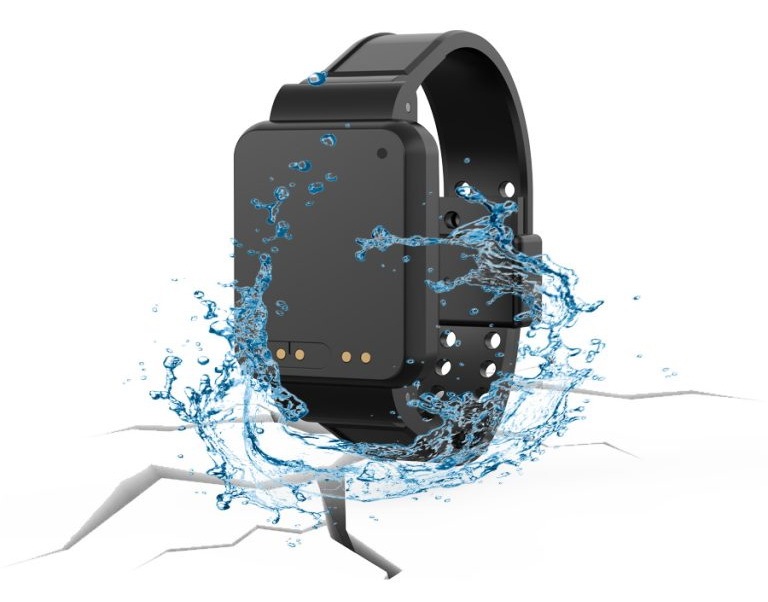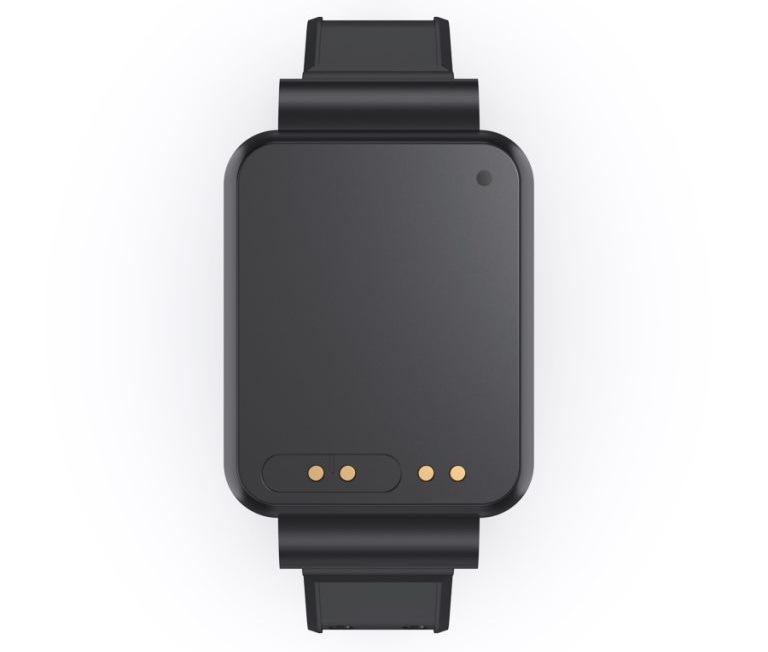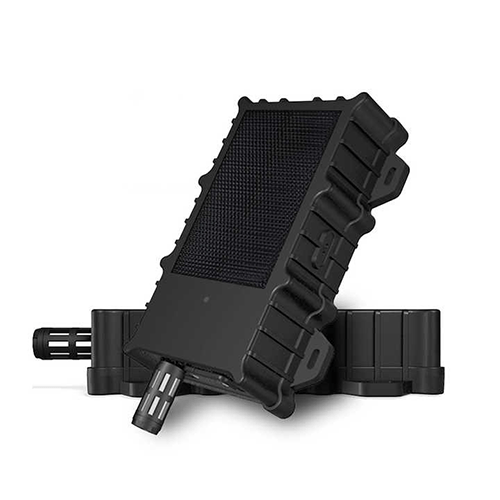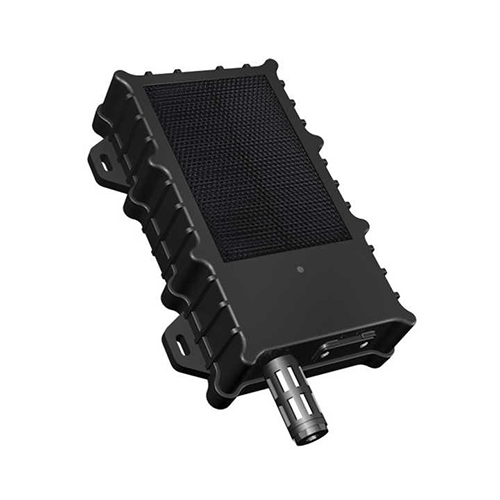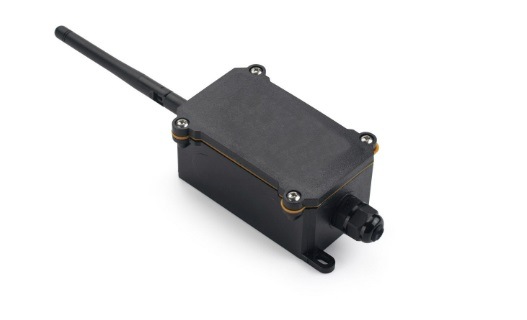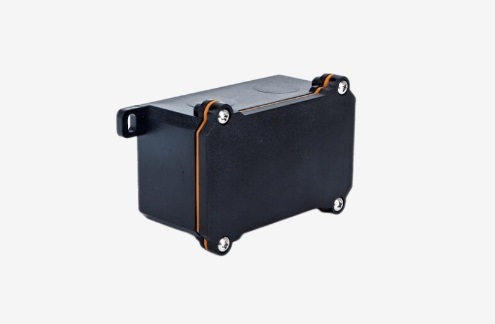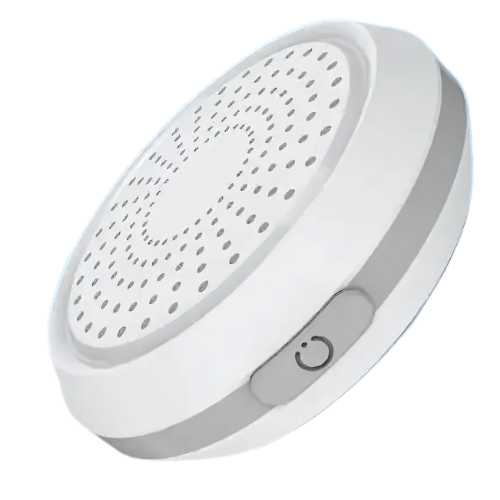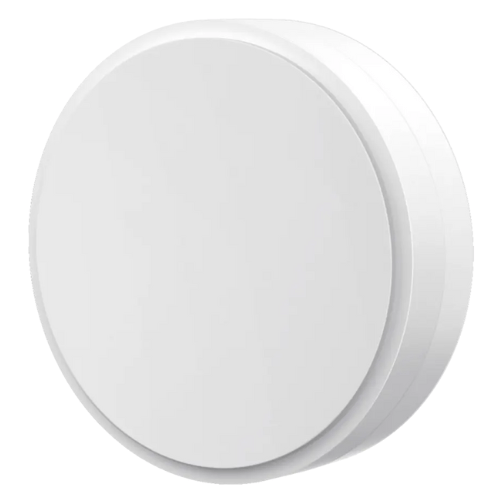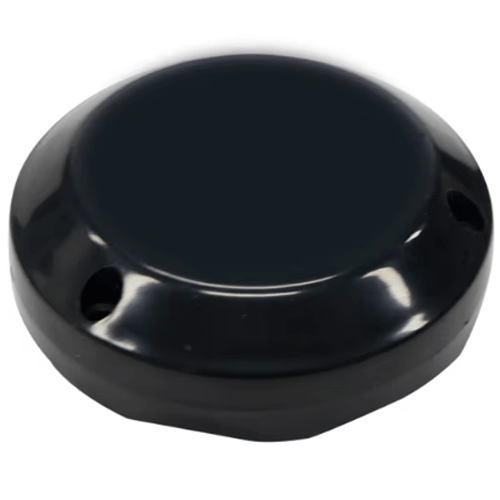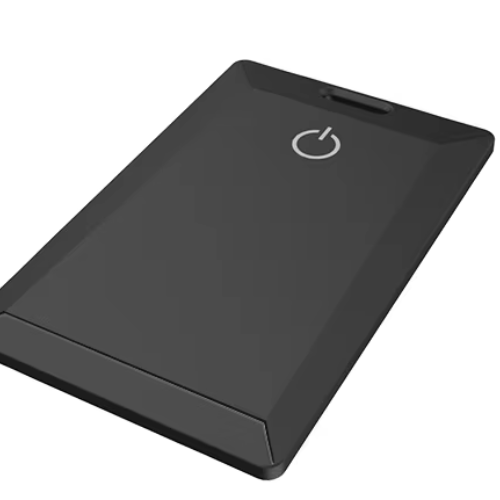Overview
Seattle–Tacoma–Bellevue, WA MSA and its surrounding areas are a hub of innovation and economic activity, known for their dynamic industries spanning technology, aerospace, clean energy, healthcare, and more. The region’s strategic position as a gateway to international markets complements its diverse industrial landscape, fostering advancements in IoT, Industrial IoT (IIoT), and smart technologies.
GAO RFID Inc., a global leader in RFID, UHF RFID, BLE, NFC, and BLE Mesh solutions, supports this vibrant ecosystem with advanced tracking, monitoring, and access control systems. Our technologies empower industries in the Seattle–Tacoma–Bellevue area, enabling precision asset tracking, building management, fleet management, and healthcare IoT applications. From pioneering solutions in construction IoT to environmental compliance monitoring in clean energy sectors, GAO RFID provides robust systems tailored to the unique needs of this innovative region.
Our deep expertise, supported by four decades of R&D and collaborations with Fortune 500 companies, ensures our products meet the stringent demands of Seattle–Tacoma–Bellevue’s leading industries. Whether optimizing supply chain logistics or enhancing security in smart cities, GAO RFID is proud to contribute to the area’s technological advancement and economic success.
Related Products & Systems
Below are products and systems related to this webpage:
- BLE Gateways
- BLE Beacons
- RFID Readers by Feature
- RFID Readers by Frequency
- RFID Tags by Feature
- RFID Tags by Frequency
- RFID Systems
- People Tracking System
- Access Control System
- Asset Tracking System
- Parking Control System
Our products are in stock can be shipped to anywhere in continental U.S. or Canada from our local warehouse. To purchase or for any further information, please fill out this form or email us.
We are actively looking for partners who are like us located in the U.S. and Canada. For more information on partnering with GAO, please visit Partner with GAO RFID Inc. It lists various ways to partner with GAO, such as OEM Partnerships, Technology Integration, Distribution and Reselling Opportunities, Presenting at the Leading Event TekSummit, Joint R&D Projects, Training and Consulting Services, Industry-Specific Collaborations, Research and Academic Partnerships.
Seattle–Tacoma–Bellevue, WA MSA and Its Surrounding Areas
The Seattle–Tacoma–Bellevue, WA MSA and its surrounding areas form a vibrant, dynamic region known for its rich history, diverse culture, economic innovation, and stunning natural beauty. This metropolitan area, often referred to as the “Puget Sound Region,” is one of the most significant economic and cultural hubs in the Pacific Northwest and the United States as a whole.
Geographical and Historical Overview
The Seattle–Tacoma–Bellevue MSA encompasses King, Pierce, and Snohomish Counties, with the major urban centers being Seattle, Tacoma, and Bellevue. Historically, the area was home to the Coast Salish people, whose presence and traditions continue to shape the cultural fabric of the region. European settlers began arriving in the mid-19th century, leading to the establishment of Seattle in 1851, Tacoma in 1868, and Bellevue in 1953.
The names of various neighborhoods, such as Ballard, Rainier Valley, and Fremont in Seattle or Ruston and Point Defiance in Tacoma, reflect a blend of indigenous, Scandinavian, and pioneer influences. Bellevue, known as the “City in a Park,” has grown from a quiet suburb to a thriving business hub.
Neighborhoods and Suburbs
Seattle, the largest city, is defined by distinct neighborhoods like Capitol Hill, known for its vibrant arts scene, and Pioneer Square, the historic heart of the city. The downtown core features iconic landmarks such as the Space Needle, Pike Place Market, and the waterfront.
Bellevue, across Lake Washington, has a bustling downtown filled with tech companies, upscale shopping at Bellevue Square, and the serene Bellevue Botanical Garden. Tacoma, with its revitalized downtown, offers the Museum of Glass, Point Defiance Park, and a strong maritime heritage. Suburbs like Redmond, Kirkland, Renton, and Everett host thriving residential communities and play significant roles in the region’s economy.
Economy and Industry
The Seattle–Tacoma–Bellevue area is an economic powerhouse, home to a diverse range of industries including technology, aerospace, logistics, and healthcare. Companies like Amazon, Microsoft, and Boeing anchor the regional economy, while a strong entrepreneurial spirit fosters innovation across all sectors.
GAO RFID Inc. has been a key partner to businesses across these industries for four decades, providing cutting-edge RFID and BLE technologies that enhances operational efficiency. Our asset tracking systems, predictive maintenance IoT solutions, and access control systems have supported numerous Fortune 500 companies and government agencies in optimizing workflows and improving security.
Culture and People
The region’s cultural landscape is a blend of artistic expression, innovation, and community engagement. The Pacific Northwest’s reputation for fostering creativity is evident in institutions like the Seattle Art Museum, Tacoma Art Museum, and a flourishing independent music scene. Cultural festivals, including Seafair and the Bellevue Arts Fair, celebrate the area’s diversity.
Seattle–Tacoma–Bellevue is also renowned for its progressive ethos, reflected in environmental sustainability efforts, diverse communities, and a strong emphasis on education and technology.
Education and Research
Education is a cornerstone of the region, with institutions like the University of Washington in Seattle and Pacific Lutheran University in Tacoma providing world-class research and learning opportunities. The presence of these institutions fuels innovation, particularly in areas like biotechnology, computer science, and aerospace.
GAO RFID Inc., headquartered in New York City and Toronto, Canada, works closely with universities and R&D firms in the Seattle–Tacoma–Bellevue area, offering tailored RFID and IoT solutions for research applications and campus management.
Transportation and Connectivity
The region’s robust transportation network includes Seattle-Tacoma International Airport (Sea-Tac), one of the busiest airports in the U.S., and extensive public transit systems like Sound Transit and King County Metro. Major highways, including I-5 and I-90, connect urban centers to the surrounding suburbs and beyond.
GAO RFID’s parking control system and fleet management IoT technologies are widely adopted in managing urban transportation challenges, ensuring efficient operations and reducing congestion.
Landmarks and Natural Beauty
Seattle–Tacoma–Bellevue is surrounded by breathtaking natural landmarks, including Mount Rainier, Puget Sound, and the Olympic Peninsula. Parks like Discovery Park in Seattle and Point Defiance in Tacoma offer urban escapes into nature. The climate, characterized by mild, wet winters and warm, dry summers, enhances the appeal of outdoor activities year-round.
Regional and National Significance
As a hub of innovation and a gateway to the Pacific Rim, Seattle–Tacoma–Bellevue plays a vital role in shaping the economy and culture of Washington State and the broader United States. The region’s industries, research institutions, and vibrant communities position it as a leader in technology, sustainability, and global trade.
GAO RFID Inc. is proud to support the businesses and institutions of the Seattle–Tacoma–Bellevue area, offering advanced RFID, BLE, and IoT solutions tailored to meet the unique demands of this dynamic region. Our commitment to quality, innovation, and customer service ensures we remain a trusted partner in driving the area’s continued success.
GAO RFID’s Technologies and Products in Seattle–Tacoma–Bellevue, WA MSA
GAO RFID Inc., a global leader in RFID and BLE technologies, has been providing advanced systems to businesses and institutions in the Seattle–Tacoma–Bellevue, WA MSA for decades. Our solutions are designed to enhance operational efficiency, improve safety, and support the growing demands of IoT-driven industries.
BLE (Bluetooth Low Energy) and BLE Mesh
BLE technology is a cornerstone of modern IoT ecosystems, offering low-power communication for applications like industrial automation, healthcare IoT, and smart city initiatives. BLE Mesh, an extension of BLE, facilitates robust device-to-device communication across extensive areas, making it ideal for smart building management and environmental monitoring systems.
RFID Systems
GAO RFID offers an extensive range of RFID technologies tailored for specific needs:
- UHF RFID enables long-range, high-speed tracking, widely used in supply chain management, asset monitoring, and inventory systems.
- HF RFID, with its secure and fast data transfer, supports payment systems, document authentication, and library management.
- LF RFID performs exceptionally in harsh environments, commonly used in access control, animal tracking, and industrial automation.
NFC (Near Field Communication)
NFC technology powers contactless applications, streamlining secure access control, ticketing, and mobile payment systems. NFC is crucial for enhancing customer experience and operational efficiency in urban transit and retail environments.
Personnel and Asset Tracking
Our personnel tracking systems ensure safety and efficiency by monitoring staff locations in real-time, ideal for construction sites, healthcare facilities, and large-scale events. Asset tracking solutions use UHF RFID and BLE to provide precise location data, enabling better resource utilization across industries such as manufacturing and logistics.
Parking Systems and Access Control
GAO RFID’s parking systems leverage RFID and BLE technologies to manage vehicle access, enhance security, and optimize parking space usage. Our access control solutions integrate RFID, NFC, and BLE to provide scalable, secure entry management for offices, residential complexes, and government facilities.
Decades of Innovation
Headquartered in New York City and Toronto, GAO RFID Inc. and its sister companies, GAO Tek Inc. and GAO Research Inc., form the GAO Group. With four decades of experience, the GAO Group is a trusted partner of Fortune 500 companies, government agencies, and top universities across North America. We ensure stringent quality control, continuous R&D investment, and unparalleled support for our customers in Seattle–Tacoma–Bellevue, WA MSA, and beyond.
Major Industries in Seattle–Tacoma–Bellevue, WA MSA Surrounding Areas
- Technology and Software Development
- Aerospace and Aviation
- Healthcare and Life Sciences
- Retail and E-Commerce
- Maritime and Trade
- Education and Research
- Clean Energy and Environmental Technology
- Real Estate and Construction
- Tourism and Hospitality
- Manufacturing
- Financial Services
- Entertainment and Media
- Transportation and Logistics
- Agriculture and Food Processing
- Defense and Military
Technology and Software Development in Seattle–Tacoma–Bellevue, WA MSA and its Surrounding Areas
Seattle–Tacoma–Bellevue, WA MSA and its surrounding areas represent one of the world’s foremost technology and software development hubs. The region’s dynamic ecosystem is fueled by global leaders in cloud computing, artificial intelligence, and e-commerce, complemented by an innovative culture that has catalyzed the growth of numerous startups. As the area continues to thrive, technologies like IoT, Industrial IoT (IIoT), and Smart Cities solutions play pivotal roles in driving forward-looking applications across industries.
Divisions of the Technology and Software Development Industry
The technology landscape in Seattle–Tacoma–Bellevue, WA MSA includes cloud services, AI research, IoT applications, and cybersecurity innovations. Cloud computing is a cornerstone of the regional economy, supported by major players operating large-scale data centers and software solutions. GAO RFID Inc. contributes to this space with advanced RFID systems, BLE solutions, and UHF RFID technologies, offering efficient asset tracking and monitoring for data centers and logistics.
AI and machine learning research thrive here, enabling groundbreaking applications across healthcare, automotive, and smart manufacturing. GAO RFID’s BLE Mesh and NFC technologies enhance the integration of connected devices, supporting predictive maintenance IoT and remote patient monitoring systems. These solutions address the region’s demand for automation and smarter processes.
The IoT sector in the Seattle–Tacoma–Bellevue area supports initiatives like Smart Cities, Connected Vehicles (V2X), and Energy Management IoT. GAO RFID delivers critical solutions for building management, parking system control, and access control, utilizing RFID and BLE Mesh systems to enhance efficiency and security.
Industry Significance and Economic Impact
The technology and software development industry is integral to Seattle–Tacoma–Bellevue’s economic fabric, employing a significant share of its workforce and contributing billions to its GDP. Major companies have headquarters or key offices in the area, driving global innovation while supporting local supply chains. GAO RFID, with decades of service in the region, plays a vital role in enabling these firms to optimize operations through RFID asset tracking and personnel monitoring solutions.
With its focus on sustainability, the industry has driven innovations in energy management and environmental IoT. For instance, GAO RFID’s HF RFID and LF RFID systems enable precise monitoring of environmental compliance, ensuring adherence to regional and national regulations.
Major Players in the Region
Prominent global technology firms anchor the region, while the area’s numerous startups and mid-sized firms create a diversified ecosystem. Universities and research institutions collaborate with these companies to foster innovation. GAO RFID has served many of these institutions and enterprises, delivering tailored solutions like UHF RFID for supply chain logistics and NFC for secure access control in high-tech facilities.
GAO Case Studies
- Cloud Infrastructure Optimization: A regional data center deployed GAO RFID’s UHF RFID systems to enhance asset management, ensuring rapid inventory tracking and minimizing downtime.
- Smart Building Solutions: A corporate campus in the region implemented BLE Mesh systems from GAO RFID to monitor occupancy and energy usage, integrating seamlessly with IoT-driven building management platforms.
- Healthcare IoT: A hospital in the area utilized GAO RFID’s NFC and BLE solutions for remote patient monitoring and equipment tracking, improving patient outcomes while reducing costs.
- Transportation IoT: A major transit hub adopted GAO RFID’s RFID parking system control solutions, streamlining traffic flow and enhancing user experience with automated access control.
- Environmental Monitoring: An energy firm leveraged GAO RFID’s HF RFID technologies for real-time tracking of compliance data across multiple sites, meeting stringent environmental standards efficiently.
Aerospace and Aviation Industry in Seattle–Tacoma–Bellevue, WA MSA and its Surrounding Areas
The aerospace and aviation industry is one of the key pillars of the economy in the Seattle–Tacoma–Bellevue, WA MSA and its surrounding areas. Known for its historical significance, this industry has played a transformative role in shaping the region’s economic landscape and global prominence. The industry in this area is centered on aerospace manufacturing, aviation technology, and related services, with key players driving innovation and growth.
Major Divisions and Players
- Aerospace Manufacturing: The Seattle–Tacoma–Bellevue region is home to major aerospace manufacturing facilities, including the headquarters and production plants of Boeing, a global leader in the aerospace industry. Boeing’s operations are critical to both the regional and national economy, contributing heavily to employment and technology development in aerospace manufacturing. Companies like Spirit AeroSystems, which manufactures aerostructures, and many others in the supply chain contribute to the development of commercial and defense aircraft, aerospace parts, and space technologies.
- Aviation Technology and Services: In addition to manufacturing, the region also excels in aviation technology and services, including avionics, flight operations, and maintenance, repair, and overhaul (MRO) services. Several smaller but highly specialized companies within the Seattle–Tacoma–Bellevue area focus on advancements in flight control systems, aircraft diagnostics, and software solutions for aviation, all of which are critical for both commercial and military aviation.
- Space and Defense Technologies: The region is also a key player in the space industry, with companies such as Blue Origin pushing the boundaries of space exploration and commercial space travel. As a result, the aerospace sector in the region is well-diversified, contributing to both traditional aviation and the growing commercial space industry.
Significance of the Industry
The aerospace and aviation industry is critical to the economy of Seattle–Tacoma–Bellevue, WA MSA and its surrounding areas. It provides thousands of high-paying jobs, fosters innovation, and contributes to the region’s economic resilience. The industry is also a significant export driver, with products such as commercial aircraft, defense systems, and space technologies being shipped worldwide.
As a leading hub for aerospace, the region’s research and development (R&D) in aviation and aerospace technology remains cutting-edge, with local universities, research institutions, and private companies contributing to groundbreaking advancements in manufacturing processes, materials, and systems integration.
Applications of RFID and IoT Technologies in Aerospace and Aviation
In this high-tech industry, advanced technologies like RFID, BLE, and IoT systems are increasingly being used to improve efficiency, safety, and asset management. GAO RFID Inc. provides solutions that have been applied to the aerospace sector, such as asset tracking and personnel tracking systems. These solutions are used to manage and track critical equipment, tools, and parts throughout the manufacturing process and during aircraft maintenance.
- RFID systems are widely used to track parts and tools within the manufacturing and maintenance operations, ensuring that each component is accounted for and meets strict quality standards. GAO’s UHF RFID systems help track and manage inventory, while NFC and
- BLE technologies are employed for quick access to information and for enabling easy equipment checks within airports or manufacturing facilities.
- Access control systems, another key area where GAO’s technology excels, are crucial for securing restricted areas in aviation and aerospace facilities. Whether it’s tracking employees’ entry into sensitive areas or managing access to hangars and testing areas, BLE
- Mesh and NFC-based solutions offer robust security while improving operational flow.In the aviation IoT field, GAO’s asset tracking and parking system control solutions help streamline operations and enhance fleet management. From monitoring the location and status of planes to ensuring that parked aircraft are safe and monitored in real time, GAO RFID’s products play an essential role in creating a connected and efficient aviation ecosystem.
GAO Case Studies
- Case Study 1: A large aerospace manufacturer implemented a comprehensive RFID-based asset management system to track parts and tools used in the production and maintenance of commercial aircraft. The system reduced errors and improved inventory management across its facilities.
- Case Study 2: A major aviation company used personnel tracking technology to enhance workforce safety in high-security areas of its hangars. This system integrated BLE and RFID to track workers in real time and monitor their proximity to hazardous zones.
- Case Study 3: An airport facility deployed access control solutions integrated with NFC technology to streamline the entry process for employees and contractors, ensuring secure access to restricted areas while reducing wait times and manual checks.
- Case Study 4: A government contractor specializing in space technology integrated asset tracking and maintenance management solutions across its network of facilities, significantly improving equipment lifecycle management and reducing downtime during critical missions.
- Case Study 5: A major aerospace company utilized UHF RFID and BLE Mesh systems to monitor and manage the status of aircraft in storage, ensuring that all components were regularly inspected and properly maintained.
Healthcare and Life Sciences Industry in Seattle–Tacoma–Bellevue, WA MSA and its Surrounding Areas
The healthcare and life sciences industry in Seattle–Tacoma–Bellevue, WA MSA and its surrounding areas is a dynamic and rapidly evolving sector that plays a pivotal role in the region’s economy. This industry encompasses a broad spectrum of fields, including healthcare services, pharmaceuticals, biotechnology, medical devices, and life sciences research. The Seattle–Tacoma–Bellevue area is home to some of the world’s leading hospitals, universities, biotech companies, and research institutions, making it a significant hub for innovation in healthcare and life sciences.
Key Divisions of the Healthcare and Life Sciences Industry
- Healthcare Services and Hospital Systems: The region is a leader in healthcare delivery, with a concentration of world-class hospitals and healthcare providers such as the University of Washington Medical Center, Swedish Medical Center, and Virginia Mason Medical Center. These institutions are recognized for their expertise in various medical specialties, research, and patient care. The integration of IoT technologies in these settings has enabled the development of smart hospital systems that leverage people tracking and asset tracking technologies to enhance operational efficiency and improve patient outcomes.
- Biotechnology and Pharmaceuticals: Seattle–Tacoma–Bellevue, WA MSA and its surrounding areas are at the forefront of biotechnology and pharmaceutical innovation. With renowned research institutions such as Fred Hutchinson Cancer Research Center and Seattle Genetics, the region is a global leader in drug discovery, gene therapy, and oncology treatments. Medical IoT (IoMT) devices, including remote patient monitoring systems, are playing a crucial role in advancing personalized medicine and improving patient care. Companies in the region are developing new technologies that support pharmaceutical production and clinical trials, with RFID and BLE systems being integrated into various aspects of the industry to ensure the integrity of the supply chain and the traceability of drugs and biological samples.
- Medical Devices and Diagnostics: Medical devices are a significant focus within the region’s life sciences ecosystem. Companies like Philips Healthcare and GE Healthcare are advancing technologies related to medical imaging, diagnostic equipment, and surgical instruments. These devices increasingly incorporate RFID and BLE Mesh technologies for asset management, ensuring that critical medical equipment is easily located and well-maintained in fast-paced hospital environments. Additionally, NFC (Near Field Communication) systems are becoming integral in point-of-care diagnostics, enabling healthcare workers to quickly access patient records and manage diagnostic tests.
- Health IT and Digital Health: The digital health sector is expanding rapidly in Seattle–Tacoma–Bellevue, WA MSA, with an increasing focus on telemedicine, health data analytics, and mobile health applications. Companies such as Qualys and Air Methods Corporation are developing technologies that empower healthcare providers and patients to interact more efficiently. IoT-enabled health systems, such as wearable devices for health monitoring, are transforming how patients are treated remotely. With solutions like people tracking and access control systems, healthcare providers can better monitor staff movement, access to critical areas, and overall facility security.
- Life Sciences Research and Innovation: Seattle–Tacoma–Bellevue’s thriving life sciences research community contributes significantly to advancing medical knowledge and finding new treatments. The region’s robust collaboration between academic institutions, research organizations, and biotech companies has made it an epicenter for cutting-edge developments in life sciences. The role of RFID and IoT technologies is growing in research labs, particularly for tracking laboratory samples, managing laboratory equipment, and ensuring regulatory compliance. GAO RFID’s asset tracking solutions can be deployed in labs for the efficient management of research materials, improving inventory control and reducing the risk of loss or contamination.
Significance to the Region
The healthcare and life sciences sector is a critical contributor to the economy of Seattle–Tacoma–Bellevue, WA MSA and its surrounding areas, providing employment to thousands of professionals across various specialties. It also drives substantial economic activity through investments in medical research, biotechnology, and medical device manufacturing. The sector is highly interconnected with the region’s technology, manufacturing, and academic institutions, fostering an ecosystem of innovation.
Moreover, the region’s focus on Medical IoT (IoMT) is enabling advancements in both clinical care and medical device development, facilitating better patient monitoring, precision medicine, and the integration of health data for improved decision-making. RFID technologies, in particular, have found applications in tracking medical supplies, managing hospital inventory, and ensuring the safety and security of both patients and healthcare workers.
The close proximity of world-class medical research centers and cutting-edge biotech companies ensures that the region remains a leader in the development of new healthcare solutions, from clinical trials to personalized treatments. As a result, Seattle–Tacoma–Bellevue and its surrounding areas continue to draw both domestic and international investments in healthcare and life sciences.
Integration of GAO RFID’s Technologies in Healthcare
GAO RFID’s innovative technologies, such as RFID, BLE, and NFC, are transforming the way healthcare organizations manage assets, track personnel, and ensure safety. For example, RFID-based asset tracking systems enable hospitals and research centers to efficiently manage medical equipment and supplies, reducing loss, ensuring equipment availability, and improving overall operational efficiency. BLE Mesh networks help track the location of medical personnel, ensuring they are in the right places at the right times, improving response times and patient care.
In hospitals, RFID technology can be used to manage medications, track surgical instruments, and even monitor patient movements. People tracking and access control solutions from GAO RFID help ensure that only authorized personnel have access to restricted areas, protecting both patient confidentiality and staff safety. Additionally, remote patient monitoring systems utilizing IoT technologies like BLE enable healthcare providers to continuously track patient conditions, allowing for real-time health data collection and better decision-making.
The use of IoMT solutions further facilitates the remote monitoring of chronic conditions, improving patient outcomes by providing doctors with real-time data about their patients’ health outside of clinical visits. GAO RFID’s BLE and NFC technologies are integral in these systems, enabling efficient communication between wearable devices and healthcare platforms.
GAO Case Studies
- Case Study 1: A major hospital network implemented a RFID-based asset tracking system to monitor the location and usage of medical equipment. The system reduced equipment loss, improved equipment availability, and optimized maintenance schedules.
- Case Study 2: A large research institution integrated RFID and BLE Mesh technologies to track biological samples in its labs. The system ensured precise inventory management and provided real-time visibility of sample locations, improving workflow and reducing contamination risks.
- Case Study 3: A healthcare provider deployed people tracking and access control systems using RFID and NFC to enhance security and efficiency. The solution ensured that only authorized personnel could access sensitive areas, improving safety and operational efficiency.
- Case Study 4: A medical device manufacturer used BLE and RFID systems to manage inventory and supply chain logistics. This system ensured that critical components were always available for production and reduced delays in the manufacturing process.
- Case Study 5: A telemedicine provider implemented remote patient monitoring using IoT-enabled devices. The system enabled continuous health monitoring and real-time data collection, leading to better patient outcomes and proactive care management.
Retail and E-Commerce Industry in Seattle–Tacoma–Bellevue, WA MSA and its Surrounding Areas
The retail and e-commerce industry in Seattle–Tacoma–Bellevue, WA MSA and its surrounding areas is a cornerstone of the region’s economy, driven by a combination of traditional retail outlets, cutting-edge e-commerce businesses, and a rapidly evolving tech landscape. This sector encompasses physical retail, online shopping platforms, supply chain management, logistics, and customer service, all supported by technological innovations that improve efficiency, enhance customer experience, and drive growth.
Key Divisions of the Retail and E-Commerce Industry
- Physical Retail and Brick-and-Mortar Stores: The Seattle–Tacoma–Bellevue region is home to a diverse range of retail outlets, from large shopping malls and department stores to small boutiques and specialty shops. Traditional retail continues to be an important segment of the industry, supported by innovations in inventory management, customer engagement, and security. Companies operating in the area leverage technologies such as RFID and BLE to enhance supply chain visibility, optimize store layouts, and improve the customer shopping experience. For example, asset tracking solutions help businesses maintain accurate inventory levels, while people tracking and access control systems can monitor store traffic and improve security.
- E-Commerce and Online Retail: E-commerce has seen explosive growth in Seattle–Tacoma–Bellevue, WA MSA, fueled by the presence of major companies like Amazon, one of the world’s largest online retailers. The region has become a global leader in online shopping innovation, with many local startups and established e-commerce platforms continuously refining their business models to cater to the growing demand for convenience and personalization. Retailers are increasingly integrating IoT and M2M technologies to automate warehousing, order fulfillment, and delivery. This integration allows for more efficient operations and enhances the overall customer experience. Solutions such as RFID are used to track products across the entire supply chain, ensuring that orders are fulfilled accurately and promptly.
- Supply Chain and Logistics: The supply chain and logistics sector is integral to the retail and e-commerce industries in Seattle–Tacoma–Bellevue. As a major logistics hub, the region benefits from its proximity to ports, airports, and highways, which facilitate the movement of goods both domestically and internationally. Advanced logistics companies rely on asset tracking and IoT technologies to monitor inventory levels, shipments, and delivery status in real time. GAO RFID’s systems for asset tracking are particularly valuable for businesses in this sector, helping to manage warehouse operations and ensure timely deliveries.
- Customer Experience and Engagement: In the retail and e-commerce sectors, customer experience is a critical differentiator. Retailers are increasingly utilizing BLE Mesh and NFC technologies to create personalized shopping experiences, whether in physical stores or online. These technologies enable retailers to offer loyalty programs, targeted promotions, and seamless payment options. People tracking systems are used in physical stores to monitor customer preferences and optimize product placement, while online platforms leverage RFID and IoT data to provide personalized recommendations and improve inventory management.
- Omni-channel Retailing: The integration of online and offline retail experiences is another key trend in the region’s retail sector. Consumers now expect a seamless shopping experience that spans multiple channels, from in-store purchases to online orders and curbside pickups. Retailers are using RFID and BLE to synchronize inventory and orders across all channels, ensuring real-time stock availability. Smart shelves equipped with RFID tags help manage inventory in-store, while IoT technologies in warehouses and fulfillment centers optimize order picking and shipping.
Significance to the Region
The retail and e-commerce industry is a major contributor to the economic vitality of Seattle–Tacoma–Bellevue, WA MSA and its surrounding areas. It creates thousands of jobs, from retail associates and warehouse workers to logistics managers and software developers. The presence of Amazon and other major players has positioned the region as a global leader in the e-commerce space, with a highly competitive environment that drives innovation in technology and customer service.
The sector also plays a crucial role in the region’s tech ecosystem. Many retail companies in the area are leveraging advanced technologies such as IoT, RFID, BLE, and NFC to streamline operations and improve customer engagement. These innovations not only enhance retail performance but also contribute to the development of broader smart city solutions. For example, RFID technology is used to create smarter stores, while BLE Mesh networks support efficient communication between devices for inventory tracking and customer interaction.
The rise of e-commerce has also had a profound impact on logistics and transportation in the region, leading to the development of smart logistics solutions. The integration of asset tracking and IoT-enabled systems has allowed businesses to reduce inefficiencies, lower costs, and offer more competitive delivery options.
GAO RFID’s Contribution to the Retail and E-Commerce Industry
GAO RFID provides a range of products and technologies that can significantly enhance the efficiency and effectiveness of the retail and e-commerce industries. For instance, RFID tags and readers are used extensively in inventory management and asset tracking, helping businesses ensure that their products are always in the right place at the right time. The BLE technology offered by GAO RFID helps businesses enhance their customer experience by enabling targeted promotions, loyalty programs, and personalized interactions.
GAO RFID’s asset tracking solutions can be used across the retail supply chain, from warehouses to retail stores, ensuring accurate and real-time data on product locations. People tracking systems can optimize store layouts and improve customer service by monitoring foot traffic patterns and staff locations. Similarly, access control solutions help secure sensitive areas within warehouses or distribution centers, preventing theft or unauthorized access to high-value items.
GAO RFID’s solutions are also critical in facilitating omni-channel retailing, enabling seamless synchronization of inventory and orders across both physical and online stores. The integration of RFID and IoT systems in fulfillment centers and delivery systems helps retailers speed up order fulfillment and reduce operational costs.
GAO Case Studies
- Case Study 1: A large e-commerce retailer implemented RFID solutions to track products from the warehouse to the customer. This system improved inventory management streamlined order fulfillment, and reduced delivery delays.
- Case Study 2: A regional department store chain used BLE Mesh technology to enhance the in-store customer experience. By offering personalized promotions and improving product placement, the store saw an increase in customer engagement and sales.
- Case Study 3: A global logistics company integrated asset tracking and IoT systems to optimize its supply chain. This solution provided real-time visibility of shipments and reduced delays, improving customer satisfaction.
- Case Study 4: A popular online retailer incorporated people tracking and access control systems to improve security and optimize warehouse operations. The system enhanced employee safety and ensured that only authorized personnel had access to critical areas.
- Case Study 5: A supermarket chain implemented NFC technology to streamline customer checkout and loyalty programs. This system allowed customers to quickly pay and receive personalized offers, enhancing the shopping experience.
Maritime and Trade Industry in Seattle–Tacoma–Bellevue, WA MSA and its Surrounding Areas
The maritime and trade industry in Seattle–Tacoma–Bellevue, WA MSA and its surrounding areas plays a critical role in the region’s economy, connecting the Pacific Northwest with global markets and acting as a hub for international trade. As a key port region, Seattle is home to a mix of shipping, logistics, manufacturing, and trade businesses that rely on technological advancements to enhance efficiency, ensure security, and meet the demands of modern supply chains. Key sectors within this industry include port operations, shipbuilding, freight logistics, and global trade services, with an increasing focus on digital transformation and automation.
Key Divisions of the Maritime and Trade Industry
- Port Operations and Shipping: Seattle–Tacoma–Bellevue, WA MSA is home to one of the largest and busiest port complexes in the United States, with the Port of Seattle and Port of Tacoma serving as vital gateways for both imports and exports. The region’s maritime industry includes major shipping lines, terminal operators, and stevedores who rely on efficient port operations to maintain global supply chains. Technologies such as RFID and asset tracking are employed to manage goods at every stage of their journey—from ship to shore to warehouse. For example, RFID tags help monitor container movement, ensuring that cargo is tracked accurately in real time. Additionally, people tracking systems can monitor personnel access to secure areas within ports, enhancing security and safety protocols.
- Shipbuilding and Marine Manufacturing: The shipbuilding and marine manufacturing industry is another important sector in the maritime and trade space, with several key players located in the region. This sector includes the construction of commercial vessels, military ships, and recreational boats, along with the manufacture of marine components. Here, RFID and asset tracking technologies can optimize inventory management and streamline the manufacturing process, ensuring parts and materials are efficiently tracked across the production line.
- Freight Logistics and Supply Chain Management: The logistics and freight sector of the maritime industry in Seattle–Tacoma–Bellevue, WA MSA is expansive, encompassing air, sea, and ground transportation systems. The seamless movement of goods requires state-of-the-art technologies to monitor assets, ensure timely deliveries, and enhance operational efficiency. RFID, BLE, and IoT solutions provide visibility at every stage of the supply chain. For instance, RFID readers track containers from port facilities to distribution centers, while BLE solutions are used to monitor equipment and cargo in real time, improving the accuracy of deliveries. Additionally, access control systems in logistics hubs ensure that only authorized personnel have access to secure cargo.
- Global Trade and Customs Operations: Global trade operations, supported by the region’s international ports, require advanced systems for customs clearance, regulatory compliance, and risk management. With an increasing emphasis on efficiency, the maritime trade sector is adopting IoT and M2M solutions to streamline paperwork and automate clearance processes. RFID technology plays a vital role in ensuring that shipments meet regulatory requirements by providing accurate and timely data on cargo contents and origin.
- Sustainable Shipping and Green Technologies: As environmental regulations become stricter, maritime companies in the Seattle–Tacoma–Bellevue area are also focusing on sustainability. The sector is investing in greener technologies such as fuel-efficient engines, alternative fuels, and carbon reduction systems. Additionally, IoT sensors are used for monitoring emissions and optimizing energy consumption, contributing to more environmentally responsible maritime operations.
Significance to the Region
The maritime and trade industry is a cornerstone of the Seattle–Tacoma–Bellevue, WA MSA economy, directly contributing to employment, trade, and economic growth. The region’s ports facilitate billions of dollars in imports and exports annually, making it a key player in global supply chains. Additionally, the industry’s reliance on advanced technologies for logistics, asset management, and security has contributed to Seattle’s growing reputation as a leader in maritime innovation.
Seattle’s position as a hub for international trade is complemented by its robust technology infrastructure, which supports everything from port operations to digital trade and supply chain management. Companies in the region are increasingly adopting RFID and IoT technologies to improve efficiency, reduce costs, and enhance the competitiveness of the region’s maritime operations. These technologies allow for greater visibility of goods, optimize transportation logistics, and streamline customs processes, giving businesses a technological edge in the global marketplace.
Moreover, the maritime industry in Seattle–Tacoma–Bellevue is heavily integrated with the region’s tech ecosystem, particularly in areas like IoT, M2M communications, and automation. This integration fosters innovation in maritime operations, particularly in the areas of predictive maintenance, asset tracking, and port automation. For example, IoT and RFID technologies are deployed to track vessels, cargo, and personnel, ensuring smoother operations and reducing the risk of delays.
GAO RFID’s Contribution to the Maritime and Trade Industry
GAO RFID’s products and technologies are integral to the maritime and trade sector, helping to enhance operational efficiency, security, and compliance. RFID tags and readers are widely used for tracking shipping containers, inventory, and assets across maritime logistics networks, ensuring seamless transport from port to warehouse. Our asset tracking solutions are crucial for managing high-value cargo, optimizing warehouse operations, and improving overall supply chain visibility.
In the area of port security, access control systems, integrated with RFID and NFC technology, help ensure that only authorized personnel have access to restricted areas, safeguarding the flow of goods and materials. BLE Mesh systems, used for people tracking, can help monitor personnel in port environments, enhancing security and workforce management.
In terms of vessel management, IoT-enabled sensors provided by GAO RFID offer real-time data on cargo conditions, vessel locations, and equipment status. These sensors help optimize shipping routes, reduce fuel consumption, and improve vessel maintenance schedules. Furthermore, RFID technology can be used for tracking parts and components in shipbuilding operations, streamlining production workflows and ensuring that materials are available when needed.
GAO Case Studies
- Case Study 1: A large international shipping company integrated RFID and asset tracking systems across its fleet and terminals. This solution provided real-time data on container locations and allowed for smoother cargo handling and timely deliveries.
- Case Study 2: A regional port facility implemented access control and people tracking systems using RFID and BLE technologies to improve security. The solution helped monitor port operations, restrict unauthorized access, and ensure compliance with safety regulations.
- Case Study 3: A shipbuilding company used RFID to track components and materials throughout the manufacturing process. The system improved inventory management and reduced material shortages, ensuring timely completion of vessels.
- Case Study 4: A logistics provider adopted RFID and IoT solutions to enhance supply chain visibility and automate customs clearance processes. The solution streamlined operations and reduced shipping delays by providing accurate data on cargo status.
- Case Study 5: A global maritime operator used BLE Mesh technology for real-time tracking of its fleet, including the location and condition of cargo. The system enabled proactive maintenance and optimized vessel schedules, reducing downtime and improving fuel efficiency.
Education and Research Industry in Seattle–Tacoma–Bellevue, WA MSA and its Surrounding Areas
The Education and Research sector in Seattle–Tacoma–Bellevue, WA MSA and its surrounding areas is one of the region’s most dynamic and rapidly growing industries. Anchored by world-class institutions, this industry spans K-12 education, higher education, research organizations, and cutting-edge technology companies focused on advancing knowledge in various disciplines. The region benefits from a vibrant academic ecosystem, bolstered by a thriving tech sector and significant federal and private research investments.
Key Divisions of the Education and Research Industry
- Higher Education and Universities: The Seattle–Tacoma–Bellevue area is home to some of the nation’s most prestigious educational institutions, including the University of Washington, one of the largest and most influential public universities in the U.S. The higher education sector in the region is a major driver of research, technological innovation, and workforce development. Universities in the area are at the forefront of fields like computer science, engineering, and medicine. Educational institutions use a variety of technologies such as RFID for library management, asset tracking, and campus security. For instance, RFID tags are used to streamline library systems and ensure that valuable academic resources are properly managed. Additionally, people tracking and access control technologies help secure academic facilities and improve student and faculty experiences.
- Research and Innovation: The region’s research and innovation sector plays a central role in advancing technologies that impact everything from healthcare to environmental sustainability. Institutions like the Fred Hutchinson Cancer Research Center, Allen Institute for Brain Science, and many private tech research companies are known for their pioneering work. Many of these organizations integrate IoT, RFID, and M2M technologies to monitor equipment, manage research samples, and streamline workflows. For example, asset tracking technologies help ensure the integrity of scientific equipment and samples, while RFID systems can be used to track lab materials and tools, improving inventory management and reducing downtime in high-precision environments. In research labs, IoT devices can monitor environmental conditions in real-time, ensuring that sensitive research materials are stored in optimal conditions.
- K-12 Education and School Districts: K-12 education in the region also benefits from technology integration, particularly in areas like student safety and asset management. RFID and BLE Mesh systems are used for student attendance tracking, classroom management, and secure access control. By incorporating these technologies, schools can track student movements, manage attendance, and ensure that only authorized individuals access certain areas of the campus. Additionally, asset tracking systems can be employed to monitor school supplies, laptops, and other educational tools, ensuring that resources are properly utilized and maintained.
- Online and Continuing Education: With the rise of e-learning, the online education sector in the Seattle–Tacoma–Bellevue area has experienced significant growth. Companies offering online learning platforms use advanced technologies, including IoT and RFID, to enhance the learning experience and improve administrative operations. For instance, NFC technology may be used to facilitate quick access to digital content or interactive learning tools, while people tracking solutions can help monitor online participation and engagement in real-time.
- Government and Public Sector Research: Government-funded research institutions in Seattle–Tacoma–Bellevue are major contributors to advancing science and technology. The region’s public sector research focuses on a broad range of subjects, from public health and infrastructure to environmental sustainability. RFID and IoT technologies are increasingly used to track and monitor critical assets in government research projects. For example, asset tracking systems can be used to ensure that expensive and sensitive equipment is properly managed in field research operations. Moreover, people tracking systems in public-sector research environments can help enhance security and improve workflows.
Significance to the Region
The Education and Research industry is a cornerstone of the Seattle–Tacoma–Bellevue economy, attracting significant talent, investment, and international attention. Educational institutions provide a steady pipeline of skilled workers, particularly in STEM (Science, Technology, Engineering, and Mathematics) fields, and contribute to the region’s strong tech sector. Research institutions play a pivotal role in developing cutting-edge technologies and innovations that have national and global implications, particularly in fields like healthcare, aerospace, and environmental science.
As education and research organizations increasingly turn to technology to enhance operations, the integration of RFID, IoT, BLE, and M2M solutions is essential in improving efficiency, ensuring safety, and fostering innovation. The adoption of these technologies not only enhances the learning environment but also streamlines campus operations, improves student engagement, and supports research endeavors.
Seattle’s reputation as a center for technological and academic excellence is enhanced by its strong emphasis on research and development, particularly in areas such as smart cities, healthcare IoT, and environmental compliance monitoring. Universities and research institutions in the region are also incorporating IoT and Industrial IoT (IIoT) solutions to improve their facilities’ energy management, safety, and maintenance operations. The integration of these advanced technologies enables educational and research organizations to operate more efficiently, securely, and sustainably.
GAO RFID’s Contribution to Education and Research
GAO RFID plays a key role in providing solutions that enhance the Education and Research industry in Seattle–Tacoma–Bellevue, WA MSA. Our range of RFID, BLE, and IoT technologies offers real-time tracking and monitoring capabilities that are critical in various academic and research settings.
For instance, in university campuses, RFID solutions help manage resources such as textbooks, laboratory equipment, and assets, reducing theft and loss while improving inventory control. People tracking and access control systems using NFC and BLE technology ensure that only authorized individuals access specific facilities, such as labs or dormitories. These solutions enhance campus security and help universities meet regulatory compliance requirements.
In research environments, asset tracking technologies from GAO RFID help manage sensitive research materials and expensive equipment, ensuring that valuable assets are properly tracked, maintained, and accounted for. Our IoT solutions are also widely used to monitor environmental conditions in labs and field research settings, providing real-time data on temperature, humidity, and other factors that are critical to preserving the integrity of research materials.
GAO RFID’s RFID and asset tracking systems are essential for tracking research samples, tools, and laboratory equipment, preventing mix-ups and ensuring the continuity of high-stakes projects. Our solutions support universities and research organizations in meeting the growing demand for automation and efficiency while maintaining the highest standards of security and reliability.
GAO Case Studies
- Case Study 1: A large research university implemented RFID and access control systems across its campus, streamlining student and faculty access to facilities and improving the management of valuable academic resources such as lab equipment and books.
- Case Study 2: A regional government research facility used asset tracking and RFID solutions to monitor scientific instruments and research materials. The system improved operational efficiency by ensuring that all assets were accounted for in real time, minimizing loss and damage.
- Case Study 3: A private research institution adopted IoT sensors and RFID tracking for environmental monitoring, allowing them to manage field data more effectively and maintain precise control over lab conditions, improving the quality and accuracy of research.
- Case Study 4: A K-12 school district used people tracking and asset management systems to ensure that student attendance was accurately recorded and that classroom resources were properly utilized, reducing inefficiencies and enhancing the educational experience.
- Case Study 5: An online education platform integrated RFID and BLE Mesh systems to improve student engagement, tracking participation in virtual classrooms and ensuring that learning materials were delivered efficiently.
Tourism and Hospitality Industry in Seattle–Tacoma–Bellevue, WA MSA and its Surrounding Areas
The tourism and hospitality industry in Seattle–Tacoma–Bellevue, WA MSA and its surrounding areas is a cornerstone of the local economy, blending natural beauty, cultural heritage, and modern attractions to draw millions of visitors annually. This industry is divided into various segments, including accommodations, food and beverage, transportation, entertainment, and event management. The integration of advanced technologies, such as IoT and RFID solutions, enhances the efficiency, safety, and guest experience across these divisions.
Key Divisions of the Industry
- Accommodations and Lodging
The Seattle–Tacoma–Bellevue area hosts a wide range of accommodations, from luxury hotels and boutique lodges to vacation rentals. Hospitality providers use BLE and RFID access control systems from GAO RFID to enhance guest safety and convenience, allowing secure room entry without traditional keys. Additionally, asset tracking systems ensure the efficient management of housekeeping supplies and maintenance equipment. - Food and Beverage
Seattle’s vibrant culinary scene includes farm-to-table restaurants, waterfront dining, and international cuisines. Restaurants and bars utilize NFC and UHF RFID technologies to manage inventory, prevent waste, and ensure food safety compliance. GAO RFID’s systems help streamline operations in the food supply chain, from tracking fresh ingredients to monitoring refrigeration units with Environmental IoT sensors. - Transportation and Travel Services
The region benefits from robust transportation networks, including Sea-Tac Airport, Amtrak services, ferries, and public transit. Smart airports and transit hubs rely on GAO RFID’s BLE Mesh networks for passenger tracking and parking system control to optimize vehicle flow. These technologies improve travel experiences while ensuring security and efficiency in managing the high volume of visitors. - Entertainment and Attractions
Tourism in Seattle–Tacoma–Bellevue revolves around iconic landmarks like the Space Needle, Pike Place Market, Mount Rainier, and waterfront activities. Event organizers and venue managers use GAO RFID’s people tracking systems and ticketing solutions for crowd control and seamless admission to attractions. Smart stadiums integrate our IoT-enabled systems for monitoring guest activities, enhancing safety, and offering personalized services. - Event Management and Conferences
The region is a hub for business and cultural events, supported by state-of-the-art convention centers and meeting spaces. GAO RFID’s asset tracking solutions aid in managing event equipment and supplies, while access control systems ensure only authorized personnel enter restricted areas. These systems contribute to the smooth operation of major events, from trade shows to festivals.
Significance to the Region
Seattle–Tacoma–Bellevue’s tourism and hospitality industry generates significant revenue, supports thousands of jobs, and fosters global recognition of the region’s unique offerings. Major players in this sector include global hotel chains, local restaurateurs, tour operators, and event planners. By adopting technologies like GAO RFID’s IoT-enabled systems and RFID solutions, these stakeholders enhance service delivery, operational efficiency, and sustainability practices.
GAO Case Studies
- Case Study 1: A large hotel in Seattle deployed GAO RFID’s access control and asset tracking systems to enhance guest security and streamline inventory management for cleaning and maintenance services.
- Case Study 2: An event organizer in Tacoma used people tracking solutions and BLE Mesh networks to manage attendees and ensure safety during a large-scale festival, improving crowd flow and reducing wait times.
- Case Study 3: A regional restaurant chain incorporated GAO RFID’s NFC-enabled inventory systems to monitor food stocks, reduce waste, and comply with safety regulations, enhancing efficiency across multiple locations.
- Case Study 4: A smart airport project in Seattle utilized GAO RFID’s BLE systems for real-time tracking of passenger movements and parking system control, optimizing airport operations and reducing congestion.
- Case Study 5: A waterfront entertainment venue in Bellevue adopted GAO RFID’s ticketing and crowd monitoring solutions to manage entry and improve guest experience during concerts and cultural events.
Real Estate and Construction Industry in Seattle–Tacoma–Bellevue, WA MSA and its Surrounding Areas
The real estate and construction industry in Seattle–Tacoma–Bellevue, WA MSA and its surrounding areas plays a critical role in shaping the region’s economic landscape and urban development. Fueled by population growth, technological advancements, and sustainability initiatives, this sector includes diverse divisions such as residential, commercial, and industrial real estate, as well as construction services. The industry also integrates cutting-edge technologies like IoT and RFID systems to optimize operations and improve project outcomes.
Key Divisions of the Industry
- Residential Real Estate and Construction
Seattle–Tacoma–Bellevue’s robust residential market includes single-family homes, multifamily housing, and luxury developments. Builders and developers leverage Construction IoT solutions to streamline operations, from site monitoring to material tracking. GAO RFID’s UHF RFID tags and asset tracking systems are used to monitor construction equipment and materials, minimizing theft and improving efficiency. BLE Mesh networks further enhance communication across large construction sites, enabling seamless coordination of resources and personnel. - Commercial and Industrial Real Estate
The demand for office spaces, retail centers, and industrial facilities remains strong in Seattle–Tacoma–Bellevue due to its thriving tech sector and proximity to major ports. Developers in this segment employ building management IoT systems to create energy-efficient, smart buildings. GAO RFID provides access control solutions that enable secure entry for employees and contractors while also offering parking system controls to optimize urban space usage. These technologies help meet the region’s sustainability goals and improve tenant satisfaction. - Infrastructure Development
Major infrastructure projects, including transportation networks and utility expansions, are pivotal in supporting the region’s growth. Construction firms in the area utilize Industrial IoT (IIoT) technologies to enhance project management and safety. GAO RFID’s people tracking systems ensure worker safety by monitoring their locations in hazardous zones, while predictive maintenance IoT tools help maintain construction machinery, reducing downtime and increasing productivity. - Green Building and Sustainable Construction
Seattle–Tacoma–Bellevue is a leader in green construction, with numerous LEED-certified buildings and a strong emphasis on sustainability. Builders use Environmental IoT sensors and NFC-enabled asset tracking to monitor energy consumption and material usage during construction. GAO RFID’s solutions contribute to these efforts by providing real-time data on carbon emissions and waste management, ensuring compliance with environmental standards and promoting eco-friendly practices. - Smart Cities and Urban Development
The region’s urban planning integrates Smart Cities technologies to improve livability and efficiency. From IoT-enabled traffic systems to intelligent building designs, the use of advanced technologies transforms Seattle–Tacoma–Bellevue into a model for modern urbanization. GAO RFID’s BLE Mesh systems and connected devices support these initiatives by providing seamless communication across multiple systems, improving city-wide resource allocation and management.
Significance to the Region
The real estate and construction industry is essential to the Seattle–Tacoma–Bellevue economy, creating jobs, attracting investments, and supporting the region’s growing population. Major players, including construction firms, real estate developers, and technology providers, collaborate to address housing shortages and infrastructure needs while prioritizing sustainability. Advanced technology integration ensures that projects are completed efficiently and align with the region’s environmental objectives. GAO RFID’s solutions, such as access control systems, asset tracking technologies, and IoT-enabled monitoring tools, empower industry stakeholders to achieve these goals with precision and innovation.
GAO Case Studies
- Case Study 1: A commercial real estate developer implemented GAO RFID’s access control systems and parking system control solutions to enhance security and optimize parking lot usage in a newly constructed office building. The system reduced unauthorized access and improved tenant satisfaction.
- Case Study 2: A construction company utilized UHF RFID tags and BLE Mesh networks to track equipment and manage worker movement across multiple large-scale sites. This integration minimized losses and streamlined project timelines.
- Case Study 3: An infrastructure project deployed GAO RFID’s predictive maintenance IoT tools to monitor heavy machinery, reducing breakdowns and ensuring uninterrupted progress on a major public transportation initiative.
- Case Study 4: A sustainable housing developer used Environmental IoT sensors and NFC-enabled asset tracking from GAO RFID to monitor energy usage and waste disposal, achieving LEED certification and exceeding regional sustainability standards.
- Case Study 5: A smart city initiative in the Seattle–Tacoma–Bellevue area implemented GAO RFID’s BLE Mesh systems to integrate traffic monitoring, building management, and public safety networks, creating a more connected and efficient urban environment.
Clean Energy and Environmental Technology Industry in Seattle–Tacoma–Bellevue, WA MSA and its Surrounding Areas
The Seattle–Tacoma–Bellevue, WA MSA and its surrounding areas stand at the forefront of the clean energy and environmental technology industry, leveraging a combination of innovative policies, private sector leadership, and a strong research and development ecosystem. With its commitment to sustainability and reducing greenhouse gas emissions, this region has become a hub for clean energy innovation, encompassing renewable energy production, energy efficiency technologies, and environmental compliance solutions.
Key Divisions of the Industry
- Renewable Energy Production: Seattle–Tacoma–Bellevue is a leader in renewable energy, with significant investments in wind, solar, and hydropower. The area’s hydropower infrastructure, powered by rivers like the Columbia, complements newer renewable technologies, including solar farms and offshore wind projects. Companies and utilities in the region use advanced IoT and RFID technologies to optimize energy production and monitor equipment. For instance, asset tracking systems enable organizations to manage critical infrastructure like turbines and solar panels, ensuring efficient maintenance and preventing downtime.
- Energy Efficiency and Smart Grid Technologies: Energy efficiency is a cornerstone of the region’s sustainability strategy. Seattle–Tacoma–Bellevue employs Smart Grid technologies to optimize electricity distribution, reduce energy waste, and integrate renewable energy sources seamlessly. GAO RFID provides BLE Mesh systems and UHF RFID solutions to track and manage energy assets, enabling utilities to monitor grid performance in real-time. These systems enhance predictive maintenance capabilities, reducing costs while improving energy reliability for consumers.
- Environmental Compliance and Monitoring: Organizations in the area prioritize environmental compliance and monitoring, addressing air quality, water conservation, and waste management. Advanced Environmental IoT systems use sensors and RFID technology to track emissions, monitor water usage, and optimize recycling operations. For example, NFC tags and IoT-enabled sensors can be deployed for real-time tracking of industrial waste, ensuring compliance with environmental standards while improving operational transparency.
- Transportation and Connected Vehicles (V2X): The Seattle–Tacoma–Bellevue area is investing in sustainable transportation solutions, including electric vehicles (EVs), smart public transit, and vehicle-to-everything (V2X) technologies. Fleet operators in the region leverage BLE and RFID technologies to monitor and optimize vehicle operations, ensuring energy efficiency and reducing emissions. GAO RFID’s systems also facilitate fleet management IoT, allowing companies to track vehicle usage, maintenance schedules, and route efficiency.
- Smart Waste Management and Recycling Technologies: Waste management innovations are critical to the region’s environmental goals. The integration of IoT sensors and RFID tags enables municipalities to track waste collection processes, optimize recycling programs, and reduce landfill contributions. GAO RFID’s asset tracking solutions play a key role in managing recycling equipment and monitoring bin usage, contributing to more sustainable waste management practices.
Significance to the Region
The clean energy and environmental technology industry is vital to the economic and environmental health of Seattle–Tacoma–Bellevue. This sector drives job creation, fosters innovation, and supports the region’s ambitious climate goals. The area’s leadership in clean energy attracts investments from global energy firms, tech giants, and research institutions, further cementing its reputation as a sustainability hub.
Technology adoption is central to the region’s success in this industry. GAO RFID’s solutions, including access control for renewable energy facilities, people tracking for operational safety, and IoT sensors for environmental monitoring, help organizations achieve greater efficiency, security, and compliance. These technologies enable Seattle–Tacoma–Bellevue’s clean energy ecosystem to meet evolving industry demands while reducing environmental impacts.
GAO Case Studies
- Case Study 1: A regional utility implemented GAO RFID’s UHF RFID and IoT technologies to monitor its wind farm assets. These systems improved equipment tracking and enabled predictive maintenance, reducing operational costs and enhancing energy production reliability.
- Case Study 2: A local government agency utilized NFC-enabled asset tracking and environmental IoT sensors to monitor air quality across urban areas. The solution ensured compliance with federal environmental standards and provided actionable data for improving public health.
- Case Study 3: An electric vehicle fleet operator adopted GAO RFID’s BLE Mesh and fleet management IoT solutions to optimize vehicle usage and reduce energy consumption. Real-time data collection improved route efficiency and lowered overall fleet emissions.
- Case Study 4: A renewable energy company deployed GAO RFID’s access control and people tracking technologies to secure its solar energy production facilities and ensure worker safety. The integrated system enhanced operational oversight and compliance with industry safety standards.
- Case Study 5: A recycling organization used RFID asset tracking and IoT monitoring systems to manage its waste sorting and collection processes. The implementation resulted in a significant reduction in landfill contributions and improved recycling rates.
Manufacturing Industry in Seattle–Tacoma–Bellevue, WA MSA and its Surrounding Areas
The manufacturing industry in Seattle–Tacoma–Bellevue, WA MSA and its surrounding areas is a critical pillar of the region’s economy, renowned for its innovations in aerospace, technology, and advanced materials. This sector is characterized by its focus on precision, sustainability, and integration of cutting-edge technologies. Leveraging solutions like those offered by GAO RFID Inc., including UHF RFID, BLE systems, and asset tracking technologies, manufacturers enhance operational efficiency and supply chain management while driving Industry 4.0 initiatives.
Key Divisions of the Manufacturing Industry
- Aerospace and Defense
Seattle–Tacoma–Bellevue is globally recognized for its aerospace manufacturing, with major players developing commercial aircraft, defense systems, and related components. The industry integrates Industrial IoT (IIoT) and RFID-based asset tracking systems to monitor high-value tools, manage component inventory, and ensure regulatory compliance. GAO RFID’s BLE Mesh networks also enable real-time monitoring of assembly lines, improving productivity and quality assurance. - Technology and Electronics
This division produces cutting-edge electronics, including semiconductors, telecommunications devices, and IoT-enabled solutions. Manufacturers use GAO RFID’s NFC and RFID solutions for precise inventory management, traceability in production processes, and secure access control to restricted facilities. Predictive Maintenance IoT systems help prevent equipment downtime, optimizing the efficiency of high-tech production lines. - Food and Beverage Manufacturing
Food and beverage processors in the area prioritize safety and traceability, supported by GAO RFID’s UHF RFID systems for tracking raw materials and finished products throughout the supply chain. Environmental IoT sensors monitor temperature and humidity in storage and transportation, ensuring compliance with safety standards and minimizing waste. - Marine and Transportation Manufacturing
Seattle’s proximity to major ports supports a thriving marine and transportation manufacturing sector. From shipbuilding to vehicle production, GAO RFID’s fleet management IoT systems enhance vehicle tracking and predictive maintenance. Smart logistics solutions, enabled by RFID and BLE technologies, ensure timely delivery of components and finished products, reducing bottlenecks in production schedules. - Advanced Materials and Biomanufacturing
This growing division supports innovation in composite materials and biotechnologies. GAO RFID’s asset tracking solutions monitor critical laboratory equipment and materials, while IoT-enabled systems ensure precise environmental control in cleanrooms and research facilities. These technologies support compliance with strict industry standards and facilitate rapid prototyping.
Significance to the Region
Manufacturing contributes significantly to employment and economic output in Seattle–Tacoma–Bellevue, WA MSA and its surrounding areas. The industry attracts skilled professionals and fosters innovation that resonates globally, especially in aerospace and technology. By adopting advanced systems like GAO RFID’s IoT-enabled asset monitoring, manufacturers streamline their operations and enhance competitiveness. The integration of Smart Manufacturing practices, supported by GAO’s RFID and BLE technologies, is transforming the region into a hub for sustainable and efficient industrial processes.
GAO Case Studies
- Case Study 1: A major aerospace manufacturer implemented GAO RFID’s UHF RFID-based tracking systems to monitor tools and ensure compliance with maintenance schedules, reducing delays in the production line.
- Case Study 2: A food processing plant in the region adopted Environmental IoT sensors from GAO RFID to maintain temperature control in storage facilities, ensuring product quality and regulatory compliance.
- Case Study 3: A high-tech electronics manufacturer utilized GAO RFID’s NFC solutions for inventory traceability, enabling real-time visibility across multiple production sites and reducing component shortages.
- Case Study 4: A shipbuilding facility integrated GAO RFID’s fleet management and predictive maintenance systems into its operations, improving equipment uptime and optimizing production timelines.
- Case Study 5: An advanced materials laboratory deployed GAO RFID’s asset tracking and environmental monitoring systems to secure sensitive equipment and maintain precise conditions for research and development.
Financial Services Industry in Seattle–Tacoma–Bellevue, WA MSA and its Surrounding Areas
The financial services industry in Seattle–Tacoma–Bellevue, WA MSA and its surrounding areas is a cornerstone of the regional economy, encompassing a diverse range of activities from banking and insurance to investment and fintech innovation. This industry thrives on a foundation of technology-driven efficiency, robust security measures, and streamlined asset management—all areas where GAO RFID Inc.’s solutions provide immense value.
Divisions of the Financial Services Industry
- Banking and Commercial Lending
Banks in the region, including large national institutions and local credit unions, are integral to supporting business growth and personal financial management. GAO RFID’s access control systems and BLE-enabled people tracking solutions help secure high-sensitivity areas such as data centers and vaults, ensuring compliance with stringent financial regulations. RFID-based asset tracking technologies further enhance operational efficiency by enabling seamless monitoring of IT equipment and physical assets across branches. - Investment and Wealth Management
Seattle–Tacoma–Bellevue is home to investment firms and wealth management companies that prioritize secure client interactions and data privacy. GAO RFID’s NFC and BLE systems can facilitate secure check-ins at private client meetings or financial seminars, enhancing customer experience while maintaining high levels of security. Our IoT-based building management systems enable intelligent monitoring of office environments, optimizing comfort for clients and reducing operational costs. - Insurance and Risk Management
The insurance sector in the region caters to both individuals and businesses, offering a variety of products ranging from life insurance to specialized marine insurance. To ensure efficient claims processing, companies adopt GAO RFID’s UHF RFID technologies for accurate tracking of policy documents and archival files. Furthermore, IoT solutions for predictive maintenance can assist insurers in assessing risks in insured properties and assets, improving their decision-making capabilities. - Fintech and Payment Processing
Seattle–Tacoma–Bellevue has seen a surge in fintech startups developing innovative payment systems and digital wallets. These firms rely on GAO RFID’s BLE Mesh networks and RFID systems to create secure, real-time data ecosystems for financial transactions. Additionally, asset tracking technologies streamline the management of critical IT infrastructure within fintech operations. - Real Estate and Property Management
Real estate and property management firms in the area benefit from the integration of GAO RFID’s IoT-enabled access control systems for secure tenant management and smart parking solutions to enhance urban property functionality. These solutions not only improve tenant satisfaction but also ensure compliance with building safety regulations.
Significance to the Region
Financial services are a major driver of employment and innovation in Seattle–Tacoma–Bellevue, WA MSA and its surrounding areas. With a strong focus on technology adoption, the sector is essential for fostering economic resilience and supporting other key industries, including technology, retail, and manufacturing. By integrating advanced solutions such as GAO RFID’s IoT platforms for asset tracking and smart building management, financial institutions in the region enhance their competitiveness and sustainability.
GAO Case Studies
- Case Study 1: A financial institution implemented GAO RFID’s BLE-based access control system across its branch offices, ensuring secure entry for employees and protecting sensitive client information from unauthorized access.
- Case Study 2: A regional insurance firm used GAO RFID’s UHF RFID asset tracking solutions to organize and monitor its extensive archive of policy documents, improving retrieval times and reducing administrative costs.
- Case Study 3: A fintech startup adopted GAO RFID’s IoT-enabled predictive maintenance systems to monitor its critical IT infrastructure, preventing costly system downtimes and ensuring smooth digital payment operations.
- Case Study 4: A real estate company deployed GAO RFID’s smart parking system in a multi-use commercial property, providing tenants with seamless parking access and improving the property’s overall functionality.
- Case Study 5: A wealth management firm integrated GAO RFID’s NFC-based client tracking system to provide personalized and secure access to its high-profile clientele during exclusive financial planning events.
Entertainment and Media Industry in Seattle–Tacoma–Bellevue, WA MSA and its Surrounding Areas
The entertainment and media industry in Seattle–Tacoma–Bellevue, WA MSA and its surrounding areas is a vibrant sector encompassing film production, gaming, live events, broadcasting, and digital content creation. This dynamic industry is bolstered by innovative technologies and a strong creative workforce, making the region a significant hub for both traditional and emerging media formats. GAO RFID Inc.’s cutting-edge solutions such as BLE-based people tracking, NFC systems, and UHF RFID technologies are integral to ensuring the smooth operation and security of this sector.
Divisions of the Entertainment and Media Industry
- Film and Video Production
Seattle–Tacoma–Bellevue is home to numerous production companies that create films, TV shows, and advertisements. The efficient management of production equipment and on-set personnel is critical. GAO RFID’s asset tracking systems ensure that valuable camera equipment, lighting rigs, and production gear are accounted for and secured. Meanwhile, BLE Mesh networks enhance the connectivity of IoT devices on set, streamlining workflows and minimizing downtime. - Gaming and Interactive Media
The region has a thriving gaming industry, with developers producing video games, VR content, and mobile applications. GAO RFID supports these companies through IoT-enabled asset tracking solutions, ensuring secure management of servers and gaming hardware. For companies hosting gaming conventions, GAO RFID’s access control systems provide secure and seamless entry for attendees, while people tracking technologies enhance crowd management. - Live Events and Performances
Seattle–Tacoma–Bellevue hosts numerous concerts, theater performances, and cultural festivals. GAO RFID’s smart ticketing solutions, powered by NFC and BLE, enable fast and secure entry for thousands of attendees. Additionally, our smart parking systems ensure efficient traffic flow and parking space utilization at large venues, enhancing the overall attendee experience. - Broadcasting and Journalism
Local and national broadcasters rely on high-tech infrastructure to deliver content across various platforms. GAO RFID’s UHF RFID systems are ideal for tracking sensitive broadcasting equipment across multiple studio locations. Furthermore, our IoT-based building management systems improve the energy efficiency and operational reliability of broadcasting facilities. - Digital Media and Content Creation
The growing demand for digital media services has driven the establishment of content creation studios and agencies in the region. GAO RFID’s IoT solutions for smart buildings create optimized work environments for creative professionals, while our asset monitoring systems ensure that high-value creative tools and data are securely managed.
Significance to the Region
The entertainment and media industry significantly contributes to Seattle–Tacoma–Bellevue’s economic growth by attracting investments, creating jobs, and fostering cultural richness. With the integration of innovative technologies such as GAO RFID’s IoT-enabled systems for asset tracking and crowd management, the region continues to enhance its global reputation as a center for creativity and technological advancement.
GAO Case Studies
- Case Study 1: A film production company implemented GAO RFID’s asset tracking systems to manage and secure its expensive film equipment, significantly reducing losses and enhancing on-set operations.
- Case Study 2: A gaming convention used GAO RFID’s NFC-powered access control solutions to ensure seamless entry for attendees and vendors, while our BLE tracking systems helped monitor crowd density in real time for safety compliance.
- Case Study 3: A concert venue installed GAO RFID’s smart parking solutions, improving traffic management for large-scale events and enhancing the overall visitor experience.
- Case Study 4: A broadcasting studio adopted GAO RFID’s IoT-based building management system to optimize energy consumption and monitor critical equipment, achieving operational efficiency and reducing costs.
- Case Study 5: A digital media company leveraged GAO RFID’s UHF RFID asset tracking to securely manage high-value creative tools and streamline its equipment inventory processes.
Transportation and Logistics Industry in Seattle–Tacoma–Bellevue, WA MSA and its Surrounding Areas
The transportation and logistics industry in Seattle–Tacoma–Bellevue, WA MSA and its surrounding areas is a vital component of the regional economy, supported by a robust network of seaports, airports, railroads, and highways. This industry facilitates the movement of goods and people across domestic and international markets, aligning seamlessly with advancements in IoT and automation. Technologies such as RFID-based asset tracking systems from GAO RFID Inc. play a crucial role in ensuring the efficiency and security of logistics operations throughout the region.
Divisions of the Transportation and Logistics Industry
- Freight and Cargo Transport
Seattle–Tacoma–Bellevue hosts the Port of Seattle and the Port of Tacoma, key maritime hubs for international trade. Efficient operations at these ports depend on cutting-edge technologies for inventory management and security. GAO RFID’s UHF RFID solutions enable precise container tracking, while BLE Mesh networks enhance real-time communication across large port facilities. These solutions reduce errors and optimize shipping processes. - Aviation Logistics
Seattle–Tacoma International Airport (SEA) is a critical gateway for passenger travel and air cargo. The airport relies on advanced asset management to maintain operations. GAO RFID’s asset tracking systems ensure the secure handling of cargo, while smart parking systems optimize vehicle flow for passengers and staff. Additionally, GAO’s IoT-enabled access control enhances security at restricted airport areas. - Warehousing and Distribution
The logistics industry in the area includes a significant number of warehouses and distribution centers that process goods for local, national, and global distribution. GAO RFID supports these facilities with RFID-enabled inventory management systems, streamlining the tracking of pallets, equipment, and high-value items. BLE-based people tracking can monitor workforce efficiency and ensure compliance with safety standards. - Public Transportation and Fleet Management
The region’s extensive public transportation network, including buses and light rail, relies on IoT-driven solutions for efficient fleet management. GAO RFID’s fleet tracking systems ensure optimal vehicle utilization and maintenance scheduling. Additionally, NFC-based fare collection systems provide a seamless payment experience for commuters. - Supply Chain and Logistics IoT
From grocery supply chains to e-commerce fulfillment centers, the industry integrates smart technologies to enhance visibility and decision-making. GAO RFID’s predictive maintenance IoT systems prevent equipment failures in critical operations, while environmental IoT solutions monitor temperature and humidity in food logistics, ensuring compliance with quality standards.
Significance to Seattle–Tacoma–Bellevue
The transportation and logistics industry is integral to the region’s economy, supporting businesses across sectors like manufacturing, retail, and technology. Innovations such as GAO RFID’s IoT-based systems for smart warehouses, connected vehicles (V2X) technologies, and building management solutions contribute to operational excellence, reducing costs and environmental impact while increasing reliability.
GAO Case Studies
- Case Study 1: A logistics company implemented GAO RFID’s UHF RFID solutions for tracking containers at a busy port, improving operational efficiency and reducing theft incidents.
- Case Study 2: An aviation logistics facility adopted GAO RFID’s BLE-based asset monitoring and IoT-enabled access control, ensuring compliance with strict security protocols while streamlining cargo management.
- Case Study 3: A distribution center utilized GAO RFID’s RFID-enabled inventory tracking to manage high turnover rates and reduce human error in processing shipments.
- Case Study 4: A public transit system integrated GAO RFID’s NFC fare collection systems with fleet tracking IoT solutions, optimizing route efficiency and improving the commuter experience.
- Case Study 5: A cold chain logistics provider deployed GAO RFID’s environmental IoT solutions to monitor perishable goods during transit, ensuring regulatory compliance and reducing spoilage rates.
Agriculture and Food Processing Industry in Seattle–Tacoma–Bellevue, WA MSA and its Surrounding Areas
The agriculture and food processing industry in Seattle–Tacoma–Bellevue, WA MSA and its surrounding areas plays a vital role in supporting the region’s economy and meeting the growing demand for fresh produce, dairy, seafood, and processed food products. With a mix of traditional farming practices and cutting-edge technologies like Agricultural IoT (Agri-IoT), the sector is evolving to enhance productivity and sustainability.
Divisions of the Industry
- Crop Cultivation and Precision Agriculture
Farmers in the region utilize innovative solutions to increase crop yield and reduce environmental impact. GAO RFID Inc. supports these efforts with UHF RFID-enabled systems for tracking agricultural equipment and supplies. Additionally, environmental IoT sensors from GAO help monitor soil moisture and nutrient levels in real-time, enabling precision farming and water resource management. - Livestock Management and Dairy Farming:
Livestock farming in the area benefits from IoT-driven systems that monitor animal health and optimize feeding schedules. GAO’s RFID tags for livestock tracking provide accurate, real-time data on animal locations, reducing losses and improving breeding programs. Combined with BLE Mesh networks, these solutions streamline large-scale operations in dairy farms. - Seafood Processing and Aquaculture
Seattle–Tacoma–Bellevue is renowned for its thriving seafood industry, including fishing, aquaculture, and seafood processing. GAO RFID’s asset tracking systems ensure that equipment and materials used in processing plants are accounted for and maintained. Environmental compliance monitoring IoT technologies help processors adhere to regulations while maintaining high-quality seafood products. - Food Manufacturing and Packaging
The food processing sector is integral to turning raw agricultural products into packaged goods ready for distribution. GAO RFID enhances these operations with inventory tracking systems that prevent waste and improve supply chain efficiency. NFC-based systems streamline product labeling, ensuring traceability from farm to table. - Cold Chain Logistics and Food Distribution
Cold chain logistics is critical for preserving the freshness of perishable items. GAO RFID provides temperature-monitoring IoT solutions to track and control environmental conditions during transportation. This ensures regulatory compliance and reduces spoilage, safeguarding the quality of food products delivered across the region and beyond.
Significance to Seattle–Tacoma–Bellevue, WA MSA
Agriculture and food processing contribute significantly to local employment and economic stability, while supplying fresh, high-quality products to both domestic and international markets. The integration of smart technologies, such as GAO RFID’s IoT systems for predictive maintenance, connected agriculture solutions, and smart warehouse management tools, helps the industry thrive while addressing challenges like labor shortages and climate change.
GAO Case Studies
- Case Study 1: A dairy farm implemented GAO RFID’s livestock tracking tags alongside environmental IoT sensors to monitor herd health and optimize milk production processes.
- Case Study 2: A large-scale aquaculture facility used GAO’s asset tracking systems and environmental monitoring technologies to ensure sustainable operations and maintain regulatory compliance.
- Case Study 3: A food packaging company integrated GAO RFID’s NFC-based labeling systems and inventory tracking tools, enabling better traceability and operational efficiency.
- Case Study 4: A crop cultivation business utilized GAO’s precision agriculture IoT solutions to monitor soil conditions and manage irrigation, significantly increasing yields while conserving water.
- Case Study 5: A seafood logistics provider adopted GAO RFID’s temperature-monitoring IoT devices and asset tracking systems to maintain product quality during transportation and comply with food safety standards.
Defense and Military Industry in Seattle–Tacoma–Bellevue, WA MSA and its Surrounding Areas
The defense and military industry in Seattle–Tacoma–Bellevue, WA MSA and its surrounding areas is a cornerstone of the regional economy, bolstered by a combination of strategic military installations, defense contractors, and advanced technology firms. This sector spans multiple divisions, including aerospace, cybersecurity, logistics, and defense systems manufacturing, all of which are critical to national security and regional prosperity.
Divisions of the Industry
- Aerospace and Military Aviation
Seattle–Tacoma–Bellevue hosts key operations in military aviation and aerospace manufacturing, supporting the development of advanced aircraft, drones, and space systems. Leveraging GAO RFID’s asset tracking systems and BLE Mesh networks, manufacturers can optimize production workflows and ensure the availability of critical components. GAO’s UHF RFID technology also assists in inventory management for aerospace parts, providing real-time visibility across the supply chain. - Cybersecurity and Communications
As an innovation hub, the area is home to companies that develop secure communication systems and cybersecurity solutions for military use. GAO RFID’s access control systems using BLE and NFC ensure the security of sensitive facilities and digital networks. These technologies, combined with GAO’s expertise in IoT-based monitoring systems, protect critical infrastructure from cyber threats. - Logistics and Supply Chain for Military Operations
Efficient logistics is essential for the movement of personnel, equipment, and supplies. GAO RFID enables seamless military IoT applications, offering real-time asset tracking for equipment and vehicles. For example, GAO’s temperature-monitoring IoT solutions ensure that perishable supplies like medical kits and rations remain viable during transport. - Defense Manufacturing and Maintenance
The region is home to several defense contractors producing vehicles, weaponry, and protective systems. GAO RFID’s predictive maintenance IoT solutions help manufacturers minimize downtime by monitoring equipment conditions and scheduling maintenance proactively. Additionally, GAO’s NFC-based systems streamline production by automating workflows and ensuring product traceability. - Public Safety and Emergency Preparedness
Defense activities in Seattle–Tacoma–Bellevue extend to public safety, disaster response, and emergency services. GAO RFID supports these operations with people tracking systems that ensure personnel accountability during large-scale events or crises. These systems, integrated with BLE Mesh networks, enable swift coordination among emergency responders.
Significance to Seattle–Tacoma–Bellevue, WA MSA
The defense and military sector is a major employer in the region, contributing billions of dollars annually to the local economy. Military installations and defense contractors foster innovation in advanced technologies, such as connected vehicles (V2X), robotics, and environmental IoT systems. GAO RFID is deeply integrated into this ecosystem, providing technologies that enhance the region’s capacity to meet evolving defense and security demands.
GAO Case Studies
- Case Study 1: A military base utilized GAO RFID’s UHF RFID asset tracking systems to monitor the location and condition of critical operational equipment, improving deployment readiness.
- Case Study 2: A defense manufacturer implemented GAO’s predictive maintenance IoT solutions to monitor production machinery, significantly reducing unplanned downtime and costs.
- Case Study 3: Emergency response teams deployed GAO RFID’s people tracking and asset tracking systems during a large-scale military exercise, ensuring personnel safety and operational security.
- Case Study 4: A military logistics provider adopted GAO’s temperature-monitoring IoT devices to ensure the safe transport of sensitive medical supplies and perishables under challenging conditions.
- Case Study 5: A cybersecurity firm used GAO’s NFC-enabled access control systems to secure its high-security development facilities, safeguarding proprietary defense communication technologies.
Here are the BLE Beacons offered by GAO RFID:
Related Products & Systems
Below are products and systems related to this webpage:
- BLE Gateways
- BLE Beacons
- RFID Readers by Feature
- RFID Readers by Frequency
- RFID Tags by Feature
- RFID Tags by Frequency
- RFID Systems
- People Tracking System
- Access Control System
- Asset Tracking System
- Parking Control System
Our products are in stock can be shipped to anywhere in continental U.S. or Canada from our local warehouse. To buy our products, software or systems or for any further information, please fill out this form or email us.




